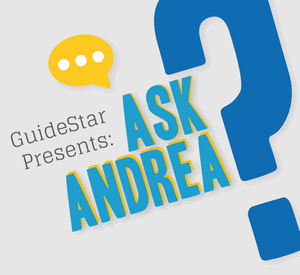We all love a good story.
That’s the appeal of movies and novels and theater. A good story takes you on a journey and touches your heart.
And we all have our own stories — private stories that shape the way we behave.
Finding the Deeper Story
Get to know those deeper personal stories about the people you work with and you’ll start building powerful, effective relationships.
Here’s an example:
I get excited about ideas. And once an idea takes hold of me, watch out! because I’m jet-propelled.
In fact, when I’m in idea-mode, I often oblivious to the people around me. And I don’t realize that they sometimes feel like they’ve been run over by a bulldozer. (Yup, that bulldozer would be me.)
Recently, I was developing a plan with a colleague. And I was in one of my exciting, idea-propelled periods. Complicated ideas just fell into place one after the other. I was on a roll.
My partner got quieter and quieter. Not objecting out loud. Just quiet.
My story was that I was doing what I’m best at and that she was happily enjoying the fruits of my creativity.
Nice story. But sadly, not true.
Her story was that she was super-busy with her own work. Too busy to take in much more. And certainly too busy to be a full partner in the journey I was mapping out.
My friend had often been bulldozed by her mother and brother when she was growing up. So she believed that if she stood up and said STOP! she’d get run over again.
My story was that the world was ours to conquer with new ideas and plans. Her story was that she’d been run over and was being dragged along.
Finally one day her frustration boiled over. That brought me down from my idea-high with a thump! Her story was not my story. And if we were to work together, I had to pay attention!
So, I bought a book about how to discuss what matters most with people. And I started reading.
How to Read Someone Else’s Story
When you’re not getting along with someone, take the time to find out their story. The situation that seemed intractable will start to make sense.
If you are willing to put your assumptions aside, it’s not difficult. Here are three approaches.
1. Take time to notice
Pay attention to what the person is doing and NOT doing. Are they not responding to your requests? Are they not looking enthusiastic or excited? Have they gotten very quiet? These are all signs that something’s going on and when you start to notice you’ll get curious.
2. Share your story
Set aside time to tell the person what’s going on with you. It’ll help her make sense of the situation and may correct some of her assumptions.
3. Ask specifically what’s going on with her
If you see signs of resistance, don’t assume they stem from incompetence or a desire to cause trouble. In fact, don’t assume anything. Set aside some time to ask what’s going on. Ask for her story. It’ll explain a lot.
Differing stories may cause friction. But really your story is…well…simply your story. It’s neither true nor false. It’s just the way things look from your point of view. And your point of view is different from mine. Not righter or wronger. Just different.
And the better you understand each other’s stories and points of view, the easier it’ll be to find the best way forward.
Get Curious about Other People’s Stories
Take time today to ask two or three people about their stories. Ask them what they’re thinking and how are they feeling about what’s going on. Don’t ask in a quick cursory way. Let them know that you are genuinely curious. You may be surprised by their response.
As you “read” someone else’s story, you’ll learn more about what makes them tick. That, in turn, will help you understand them and solidify your relationship.
When have you been surprised to learn what’s really going on with someone else? How did you find out? Share your story in the comments below.

Speak Your Mind